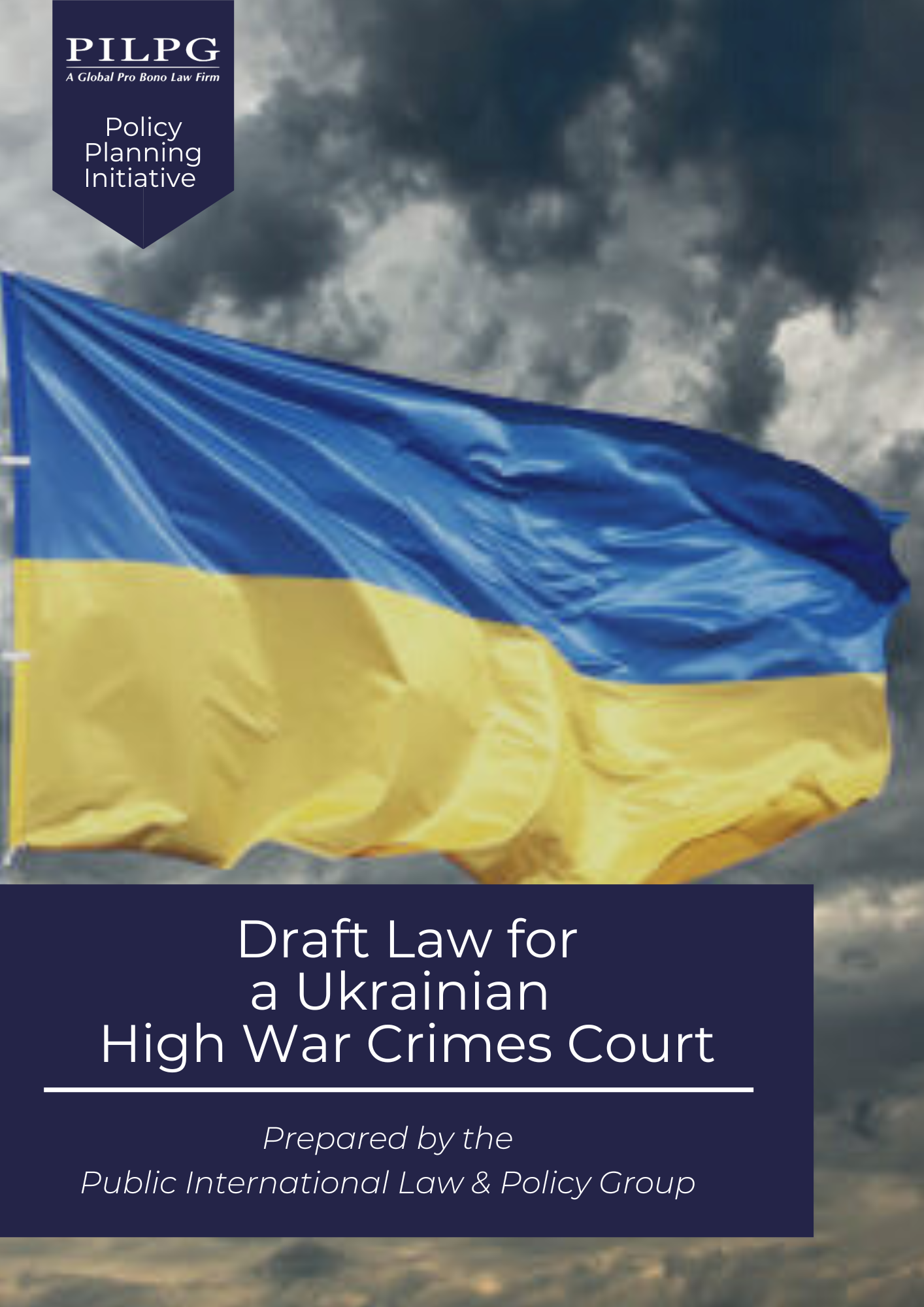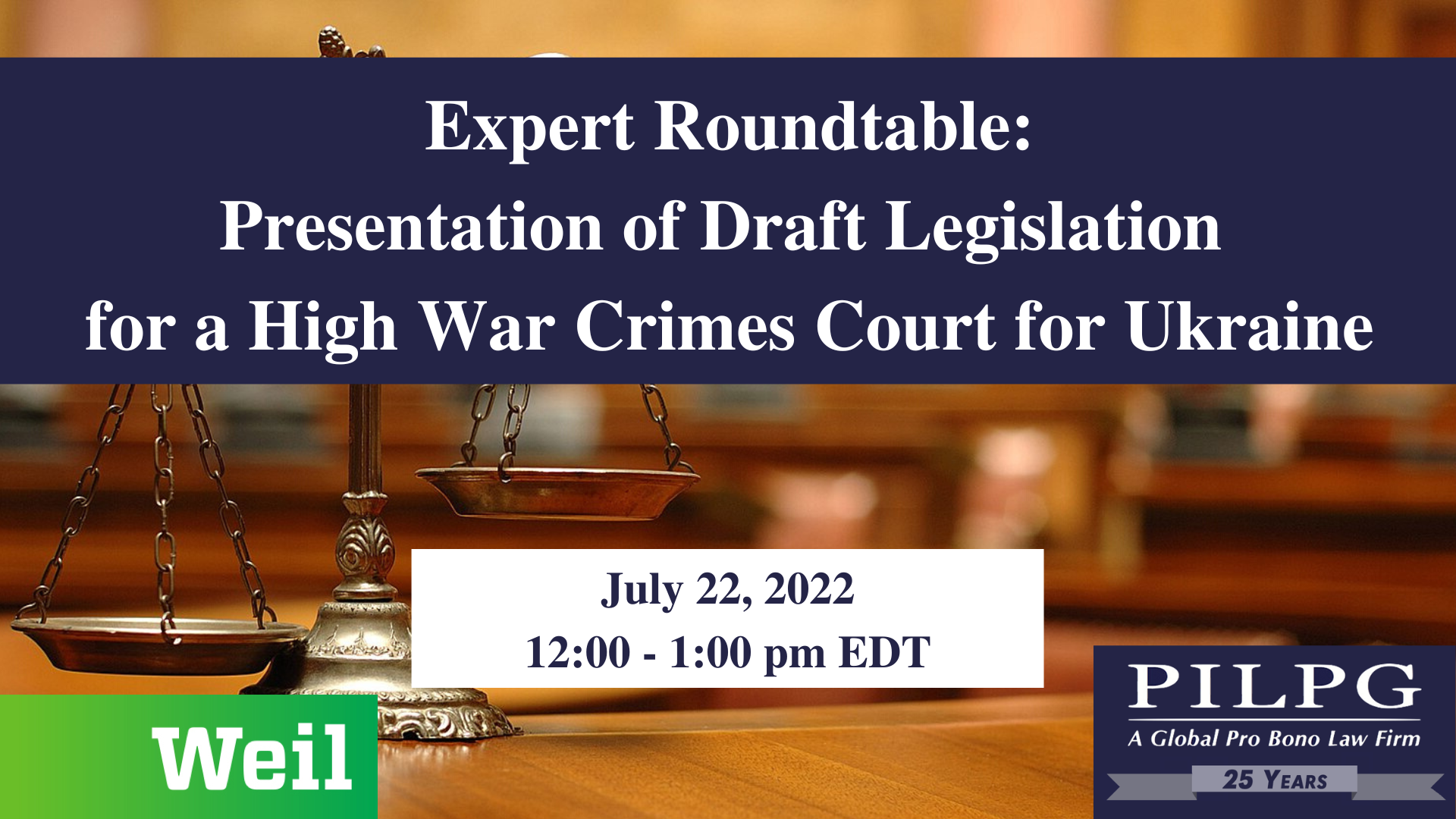Policy Planning:
Draft Law for a Ukrainian High War Crimes Court
Introductory NOte
The International Criminal Court (ICC) has opened an investigation and will likely prosecute a handful of high-level perpetrators of atrocity crimes committed in Ukraine. Since the ICC does not have jurisdiction over the crime of aggression with respect to Ukraine, there are proposals to establish a hybrid international or regional tribunal to prosecute high-level Russians for the crime of aggression currently under discussion. Because these international mechanisms are designed to prosecute a small number of individuals, there is recognition that most of the perpetrators will need to be prosecuted by domestic courts in Ukraine. Yet, history has shown that without international assistance and involvement it is inherently difficult to fairly and effectively prosecute foreign nationals and separatists in ordinary domestic courts during and in the aftermath of an armed conflict.
To facilitate fair and effective accountability for the atrocity crimes committed in Ukraine, PILPG, together with Weil Gotshal & Manges and jurists and legal experts from Ukraine, prepared draft legislation for a High War Crimes Court for Ukraine to prosecute atrocity crimes. Drawn from the Law on the High Anti-Corruption Court of Ukraine of 2019 and best practices of internationalized domestic war crimes courts around the globe, this draft Law provides the template for a Ukrainian High War Crimes Court to prosecute atrocity crimes committed in Ukraine since November 2013.
It is a discussion draft intended to inform the formulation of a domestic prosecutorial mechanism that will complement the efforts by existing domestic courts, the ICC, and any future hybrid international tribunal for the crime of aggression. The footnotes include options and explanations for the proposed provisions.
On July 22, 2022, PILPG presented the Draft Law during an expert roundtable conversation. Click below to access recordings of the event and learn more.
Blog: High War Crimes Court of Ukraine for Atrocity Crimes in Ukraine
Authored by PILPG Co-Founders Dean Michael Scharf and Dr. Paul R. Williams, Managing Director Professor Milena Sterio, and Senior Legal Advisor Dr. Yvonne Dutton, this blog post overviews the draft law for a High War Crimes Court for Ukraine.
ABOUT PILPG’S POLICY PLANNING INITIATIVE
PILPG’s Policy Planning Initiative supports the development of long term, strategic policy planning that is crucial to international accountability, global conflict resolution, and the establishment of international peace. The Initiative provides timely and accurate policy planning analysis and work product on pressing and future policy conundrums by leveraging PILPG’s deep network of talent within the international legal and policy communities and experience with its pro bono clients globally. PILPG Policy Planning focuses on advising policymakers, policy shapers, and engaged stakeholders on pressing issues within the arenas of international law, war crimes prosecution, and conflict resolution efforts. This includes identifying and addressing gaps within existing policies, anticipating key conundrums and questions that will riddle future policy decisions, applying lessons learned from comparative state practice, and proactively producing and sharing work product to inform such policies and avoid crisis decision making.
About PILPG
The Public International Law & Policy Group is a global pro bono law firm providing free legal assistance to parties involved in peace negotiations, drafting post-conflict constitutions, and war crimes prosecution/transitional justice. To facilitate the utilization of this legal assistance, PILPG also provides policy planning assistance and training on matters related to conflict resolution.
Since its founding in 1995, PILPG has provided legal assistance to over two dozen peace negotiations, and over two dozen post-conflict constitutions, and has assisted every international and hybrid criminal tribunal, as well as helped to create a number of domestic transitional justice mechanisms. PILPG represents a diverse array of pro bono clients including states, sub-state actors, opposition groups, self-determination movements, civil society, and marginalized actors, including women and youth.




